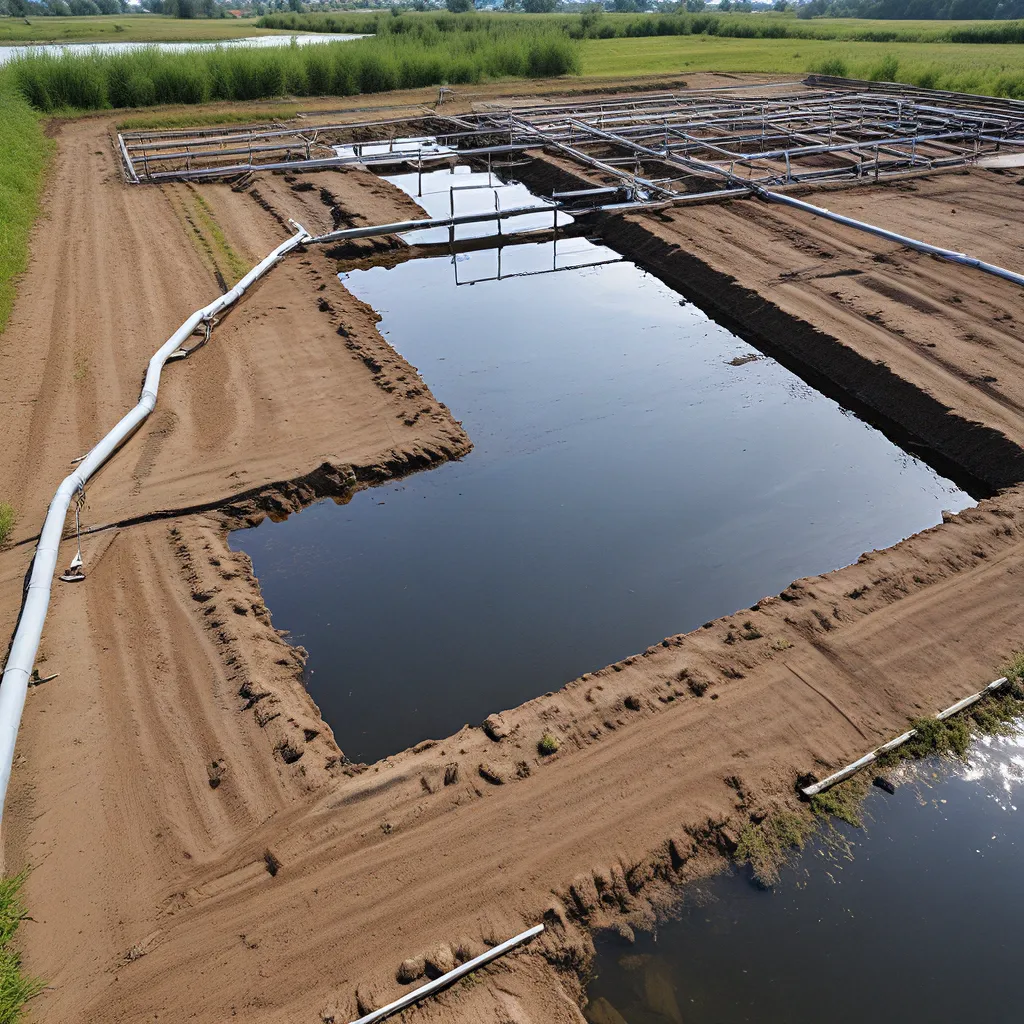
As a wastewater treatment professional, I’m constantly in awe of the incredible capabilities of microorganisms. These tiny lifeforms hold the key to unlocking a more sustainable future, both for our industry and for the world at large. Let me take you on a journey through the remarkable world of microbial biotechnology and how it can revolutionize the way we approach wastewater treatment and beyond.
Microbes to the Rescue: Cleaning Our Water and Combating Climate Change
When it comes to wastewater treatment, microbes are our unsung heroes. These microscopic powerhouses possess an incredible ability to break down and transform a wide range of compounds, including the pollutants and contaminants that plague our waterways. By harnessing the unique metabolic processes of microorganisms, we can develop highly efficient, cost-effective, and environmentally-friendly wastewater treatment solutions.
Recent initiatives have recognized the immense potential of microbial biotechnology to address some of the world’s most pressing environmental challenges. Not only can microbes help us clean up our wastewater, but they can also play a critical role in carbon capture and sequestration, helping to mitigate the devastating effects of climate change.
Imagine a future where wastewater treatment plants actively remove greenhouse gases from the atmosphere, harnessing the photosynthetic powers of cyanobacteria to convert carbon dioxide into oxygen and other valuable compounds. Or consider the possibility of leveraging electricigen bacteria to generate renewable energy from organic waste, creating a truly circular system that maximizes resource efficiency.
The possibilities are endless, and the time to act is now. By embracing the incredible capabilities of microorganisms, we can revolutionize the way we manage our water resources and take a giant leap towards a more sustainable, bioeconomy-driven future.
Closing the Loop: Microbial Processes for Waste Recycling and Reuse
But the benefits of microbial biotechnology don’t stop at wastewater treatment. These versatile organisms can also play a crucial role in creating a more circular economy, where waste is transformed into valuable resources.
Cutting-edge research has shown how microbes can be harnessed to extract rare earth elements and other critical minerals from mining waste or even extraterrestrial regolith. By employing biomining techniques, we can reduce our reliance on traditional, resource-intensive mining methods and minimize the environmental impact of our resource extraction efforts.
But the applications of microbial biotechnology don’t end there. These amazing lifeforms can also help us tackle the global plastic pollution crisis. Certain microbes have the ability to biodegrade and upcycle plastic waste, converting it into valuable chemicals or bioplastics that can be reintegrated into a sustainable manufacturing cycle.
Imagine a future where your old plastic bottles are transformed into the building blocks for new, eco-friendly products – all thanks to the incredible power of microbes. And the best part? This circular approach can be scaled up to tackle the mountains of electronic waste and other synthetic materials that currently plague our environment.
Microbes in Space: Enabling Sustainable Exploration and Habitation
As humanity sets its sights on expanding our presence beyond Earth, microbial biotechnology is poised to play a crucial role in enabling sustainable space exploration and habitation. Researchers are exploring how microbes can be harnessed to create closed-loop life support systems, recycle waste, and even extract valuable resources from extraterrestrial environments.
Imagine a future where astronauts can rely on a thriving community of microbes to convert their waste into food, oxygen, and other essential resources, reducing the need for costly and resource-intensive resupply missions from Earth. Or picture a moon or Mars outpost where microbially-induced calcite precipitation is used to construct sturdy, self-healing habitats and infrastructure, all without depleting precious resources.
The implications are staggering. By embracing the power of microbes, we can not only support human exploration of the cosmos, but also lay the groundwork for self-sustaining, off-world settlements that minimize our environmental impact and maximize the effective use of local resources.
The Bioeconomy of the Future: Pharmaceuticals, Probiotics, and Beyond
But the wonders of microbial biotechnology don’t stop there. These remarkable organisms are also revolutionizing the way we approach human health and nutrition. Researchers are investigating how microbes can be harnessed to produce novel pharmaceuticals, including treatments for the unique challenges faced by astronauts during long-duration space missions.
Imagine a future where *space-grown medicines, tailored to the needs of explorers, are readily available on demand, reducing our reliance on supplies from Earth and ensuring that our interplanetary adventurers have access to the critical care they need.
And let’s not forget the role of microbes in supporting plant growth and soil health. By cultivating agricultural probiotics to enhance the resilience and productivity of crops, we can ensure that our off-world food systems are not only sustainable but also highly nutritious, providing our astronauts and future colonists with the sustenance they need to thrive.
The Future is Microbial: Embracing the Bioeconomy for a Sustainable Tomorrow
As I reflect on the incredible potential of microbial biotechnology, I can’t help but feel a sense of excitement and wonder. These tiny lifeforms hold the key to transforming our world, helping us address some of the most pressing environmental, social, and economic challenges we face.
Alpha Wastewater is proud to be at the forefront of this microbial revolution, harnessing the power of these remarkable organisms to deliver innovative, sustainable solutions for our clients. By embracing the bioeconomy, we are not only improving the way we manage our water resources, but also contributing to a more resilient, equitable, and environmentally-conscious future for all.
So, what are you waiting for? Join me in this incredible journey and let’s unlock the full potential of microbial biotechnology for a better tomorrow. The future is microbial, and it’s time to embrace it!